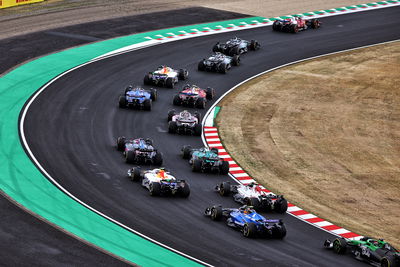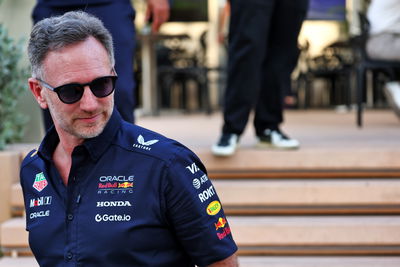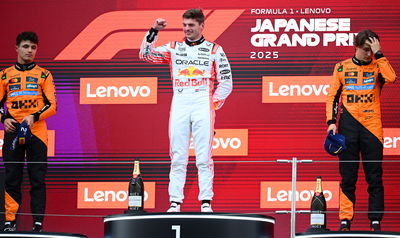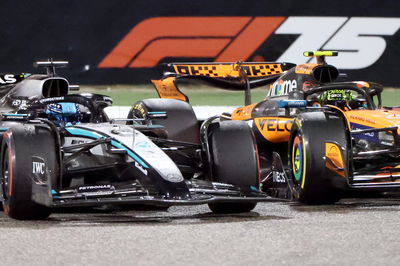Revealed: What was decided in key FIA meeting amid F1 V10 talks
The key talking points from a crunch FIA meeting in the Bahrain F1 paddock on Friday have emerged.

A crunch meeting involving F1 power unit manufacturers and the FIA was held on the sport’s future direction ahead of the Bahrain Grand Prix.
The FIA convened a meeting in the Bahrain paddock on Friday to discuss the current and future power unit direction for F1. The meeting was chaired by FIA president Mohammed Ben Sulayem, who first suggested the idea of F1 returning to V10 engines.
Representatives from all six F1 power unit manufacturers were involved, as well as General Motors ahead of their future entry with Cadillac.
"It was a very cordial, productive meeting with the FIA president asking for feedback about what the next generation of engine should look like," Red Bull team principal Christian Horner told Sky Sports F1.
"Obviously 2026 is absolutely fixed, but thinking a little further down the line, what is the right trajectory for Formula 1? 2028 is pretty much impossible.
"I think it's a fact-finding mission at the moment. It's now down to the power unit manufacturers to feed back to the FIA. They're gaining all their information and then it'll progress from there."
Pushback over V10s
Having signed up to F1 based on the current 2026 hybrid rules, Audi and Honda voiced their opposition to the proposal of scrapping the rules altogether.
As a result, the FIA has firmly committed to the 2026 regulations.
Horner also revealed that Red Bull, who are creating their first-ever in-house power units backed by Ford, were firmly against the idea of returning to V10s.

Asked directly if he would support the return of V10s, Horner replied: "No we absolutely don’t. We're building an infrastructure based on the current set of regulations, and so whatever the future regulations are, it needs to take into account the resources that teams have and you know, we've structured our business around this current set of regs.
"We're excited about ’26. It's rapidly approaching, and in the engine world, it's literally tomorrow. But, you know, we're making very good headway and pleased with progress.”
A possible V10 switch is now believed to be off the table entirely until at least 2029. Horner indicated it may not happen until 2031.
“There is a governance. When this set of regulations came in, the [power unit manufacturers] signed up to a document that binds the governance. So you have to have what they call a supermajority for any significant change. So that would be out of the six, you’d need four votes out of the six PUMs.
“’31, at the end of [the] Concorde [Agreement] possibly, but before that would need to follow a governance. There is a governance, so it can’t just be, you know, ‘we’re going to introduce this next’.”
F1 wants to avoid repeat of Mercedes dominance
Convergence was another key topic on the agenda amid fears that one team could dominate the new era of F1 rules.
Horner revealed some teams are concerned one manufacturer could enjoy a sizeable performance advantage - just like Mercedes did when the 2014 V6 hybrid rules were introduced.
"When you get a big regulation change, there is performance divergence and that is almost certain to happen next year," Horner said.
"One of the topics on the agenda this morning was, how quickly can there be convergence? We have a budget cap. Perhaps the engines don't need homologating, perhaps you're able to upgrade your engines under that budget cap to encourage convergence as quickly as possible.
"I think we all want to have close-quarters racing, not a repeat of what we had in 2014. It's about having that ability – particularly for the newcomers – to be able to catch up.”
Lowering costs of F1 powertrain research and development, reducing the complexity of power units, and considerations relating to sustainability, safety, performance, road car relevance, sound and audience appeal were also discussed.












